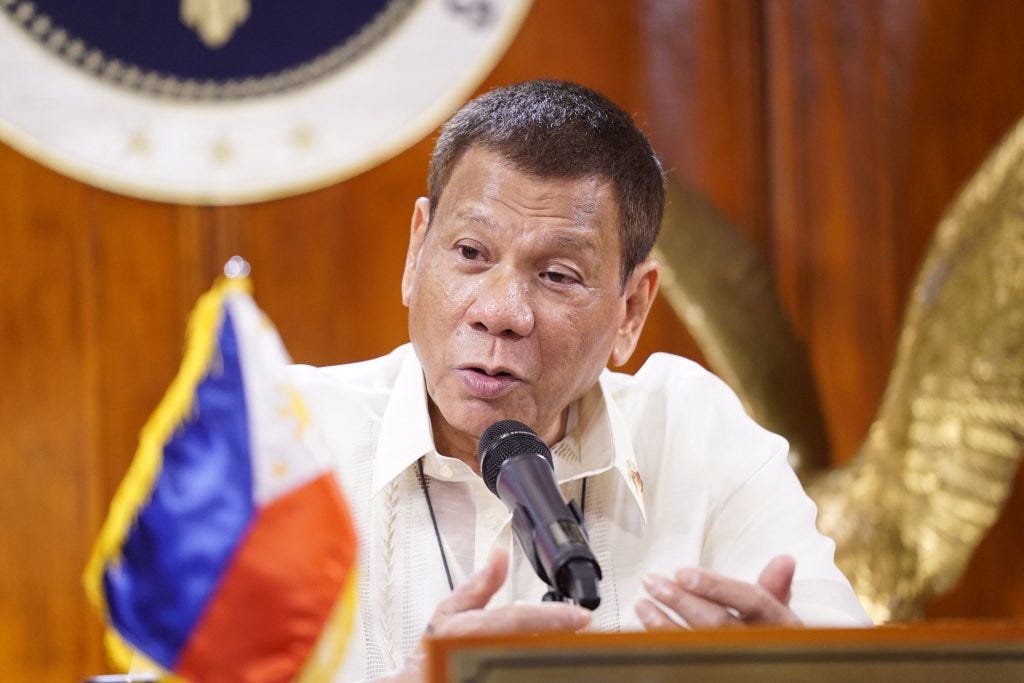Duterte Yields to Reality on South China Sea
Facing criticism at home over China stance, Philippines’ president asks for UN help

President Rodrigo Duterte’s September 23 appeal for international backing for the 2016 Court of Arbitration backing for the Philippines against China on South China Sea issues has surprised the world and delighted at least some of his critics at home – those more concerned with the sea than human rights issues.
It was an unusually subdued and even digni…
Keep reading with a 7-day free trial
Subscribe to Asia Sentinel to keep reading this post and get 7 days of free access to the full post archives.

